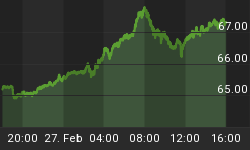
Special Guest: Axel Merk, is the President and Chief Investment Officer of Merk Investments, manager of the Merk Funds. He is a recognized expert on the global economy, monetary policy and international investing.
Axel Merk is a recognized authority on currencies and is a pioneer in the use of strategic currency investing to seek diversification. He has been named a "Currency Guru" by Morningstar. Axel Merk is a regular guest on CNBC, FoxBusiness and Bloomberg. His columns and interviews frequently appear in the Financial Times, Wall Street Journal, Barron's and other financial media around the world. Merk is a sought after expert speaker at industry conferences, including the annual conferences of the CFA, FPA and AAII, as well as at universities, government organizations and think tanks. Merk's expertise encompasses topics ranging from the global economy, gold and currencies to sustainable wealth and personal finance. Axel Merk's Book "Sustainable Wealth" was published by Wiley in 2009 and his newsletter Merk Insights reaches a wide audience of investors, analysts and media following global macroeconomic issues and implications to investing.
PODCAST - 25 Minutes
Financial Repression
"In a nutshell, it is ways governments are trying to deprive you of purchasing power because the government has too much debt and must debase the value of the debt."
"Through the backdoor the government is trying to take some of your net worth .... It is a wealth TRANSFER from savers to those who have piled up a excess debt" "It is most commonly done through negative real interest rates!"
Central Bank Inflation Goals
"You often don't have enough inflation in the world when you have too much debt".
This is why the US, the EU and Japan are trying frantically get inflation up, despite it being bad for the average citizen or saver.
Axel Merk believes that if in 10 years we were to get back to historic bond levels, then there would be an additional $1 trillion in government interest rates. The fed is simply not going to allow that and therefore interest rates are realistically not going up.
Negative Real Interest Rates
Even a Fed Funds Rate of 1.75 next year would likely still mean we would have negative real interest rates.
Social Unrest & Political Instability
"Policy makes never blame themselves for the problems they have. They always blame a minority, the wealthy or foreigners."
When you have too much debt political stability declines. In parts of the world where food and energy are bigger part of their disposable income you can expect social unrest as these inflation policies take on greater roles.
It is a fact that austerity policies fail at the polls as we have seen in Europe. In the US we are electing increasingly more populist politicians which means entitlement reforms have a slim chance of happening. Therefore "Kicking-the-Can-Down-the-Road" and reliance on the central bank to keep rates low.
We have former super powers on the decline and emerging super powers on the rise. We can only hope that this transition will be peaceful. A central banker told Axel prior to his starting his funds that "We can only hope the adjustment process will be slow and gradual"
Japan is Ahead of Us in This Evolution
"Liquidity has dried up in the JGB market which means that at some point it is easier to have some sort of crisis."
Regulation
Regulations in general are about barriers to entry. Therefore it limits risk taking which inevitably leads to less economic growth. By simply keeping interest rates low it doesn't put sufficient pressures on the system for structural reforms. As low interest rate policies continue to fail the political bias will be to "double down" which means the problems get even worse. Eventually the structural changes required becomes too great to be politically possible without hiding behind a major crisis.
Swiss National Referendum
The Swiss are fiercely independent and don't like the dependencies which the Euro peg to the Swiss Franc are creating. They don't like the debt an unelected central bank is piling onto the nation. What is important is that the referendum is trying to force more discipline into monetary policy.
What Investors Must Realize
Cash is no longer safe anymore! The purchasing power of cash is at risk. Once investors realize this the investment world is open! They then need to invest based on the risk spectrum.
- EQUITIES - Prices are elevated because of the actions of central banks,
- BONDS - "I wouldn't touch with a ten foot pole in the current environment."
- DIVERSIFICATION suggests adding Currencies and Precious Metals.
- BE ALERT - Have your own opinion after building your own framework















